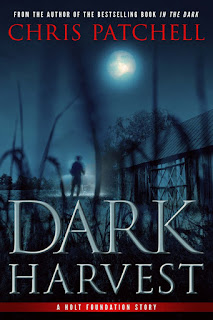I was having lunch with a friend of mine, whose wife is a NYT
bestselling author. This author had generously agreed to read over my first
manuscript. Thank god, she loved the story. If she hadn’t, it might have ended
my fledgling writing career right there and then. But there was one thing this
friend said that caught my attention. He said after they had dinner with
another aspiring writer friend, his wife had said that she wished she could
marry my gift for writing a twisty plot, with his gift for character.
 |
| http://amzn.to/2vmi5Ak |
The inference was clear—I had some
work to do. Many artists say that you must create a lot of art to become the
kind of artist you want to be. And while there is no denying that practicing
your art will help you get better, it is also true that experience alone
doesn’t always result in excellence. As a writer, you must learn new skills.
Many experts cite that doing the work is not enough. You need to put in focused
efforts to grow your skills to become a master—or as one of my favorite classic
movie characters, Sheriff Martin Brody says in the movie, Jaws, “You’re gonna need a bigger boat.”
Deliberate practice is a concept
that is well known to musicians. There are books and books dedicated to helping
pianists master difficult techniques. But how to do that as a writer is less
clear, so here are a few things I’ve done to improve.
The first thing I’m going to tell
you is that you can’t boil the ocean. Setting out to try and fix everything you
deem wrong about your writing style may frustrate you to the point where you’re
ready to call it quits! How many creative writing students in college never
write a single thing more after they graduate? Too many. I could go on at
length about the things I think needed fixing in my first book. So, instead of
endlessly nitpicking every flaw, find your great white shark. Zero in on one
narrow aspect of your writing—a specific weakness that you want to improve.
Seek out the people who will give you constructive feedback on that aspect of
your style. Experts want to know what they did wrong so they can fix it and
improve. Set aside dedicated time to work on exactly that. For me, it’s writing
action scenes.
Find an author you admire who is a
master at the skill you want to learn. I picked Blake Crouch. I read his action
scenes. Analyzed them. Made notes about what he does and how he does it. Using
my notes as a guide, I selected one of my action scenes and rewrote it. Then I
got feedback from my writing group and revised it again. And again. Until it
was better. Then I kept on writing action scenes until the style improvements
became ingrained and the shark was slain.
I won’t lie. Deliberate practice is
hard. Less enjoyable than the general feel of writing. But that’s the way it’s
supposed to feel. It’s supposed to be hard. Awkward. If it wasn’t, you probably
would not have identified it as a weakness in the first place. When I first
started rewriting the action scenes for In
the Dark, there were days when I would only get a paragraph or two written.
The work was hard. Frustrating. Painful. But the result of that work was
transformative.
If you’re like me, deliberate
practice is not something that magically happens. Only through carefully
designed exercises and focus do you achieve the kind of improvements you’re
looking for. Every craftsman knows that the constant refinement of skill over
time yields results.
So, when you decide to take on a shark, remember, you can’t boil the ocean. You get to target
one great white per project, otherwise you’ll never finish anything. The
discipline involved in deliberate practice will serve you well the next time
you see the fin circling your boat and know you need to go on the hunt.
Chris Patchell is the bestselling author of In the Dark and the Indie Reader Discovery Award winning novel Deadly Lies. Having recently left her long-time career in tech to pursue her passion for writing full-time, Chris pens gritty suspense novels set in the Pacific Northwest, where she lives with her family and two neurotic dogs.
Catch Up With Chris Patchell On:
GIVEAWAY
advice for writers
books
Chris Patchell
guest post
How to build a bigger boat
partners in crime tours
writing
writing advice












2 Comments
Such an interesting post!
ReplyDeleteThanks, Cheryl. Everybody wants to become great at what they do. So, whether you're a writer, a teacher, or a project manager, these tips can help you improve.
ReplyDeleteI love to hear from you. So feel free to comment, but keep in mind the basics of blog etiquette — no spam, no profanity, no slander, etc.
Thanks for being an active part of the Writers and Authors community.